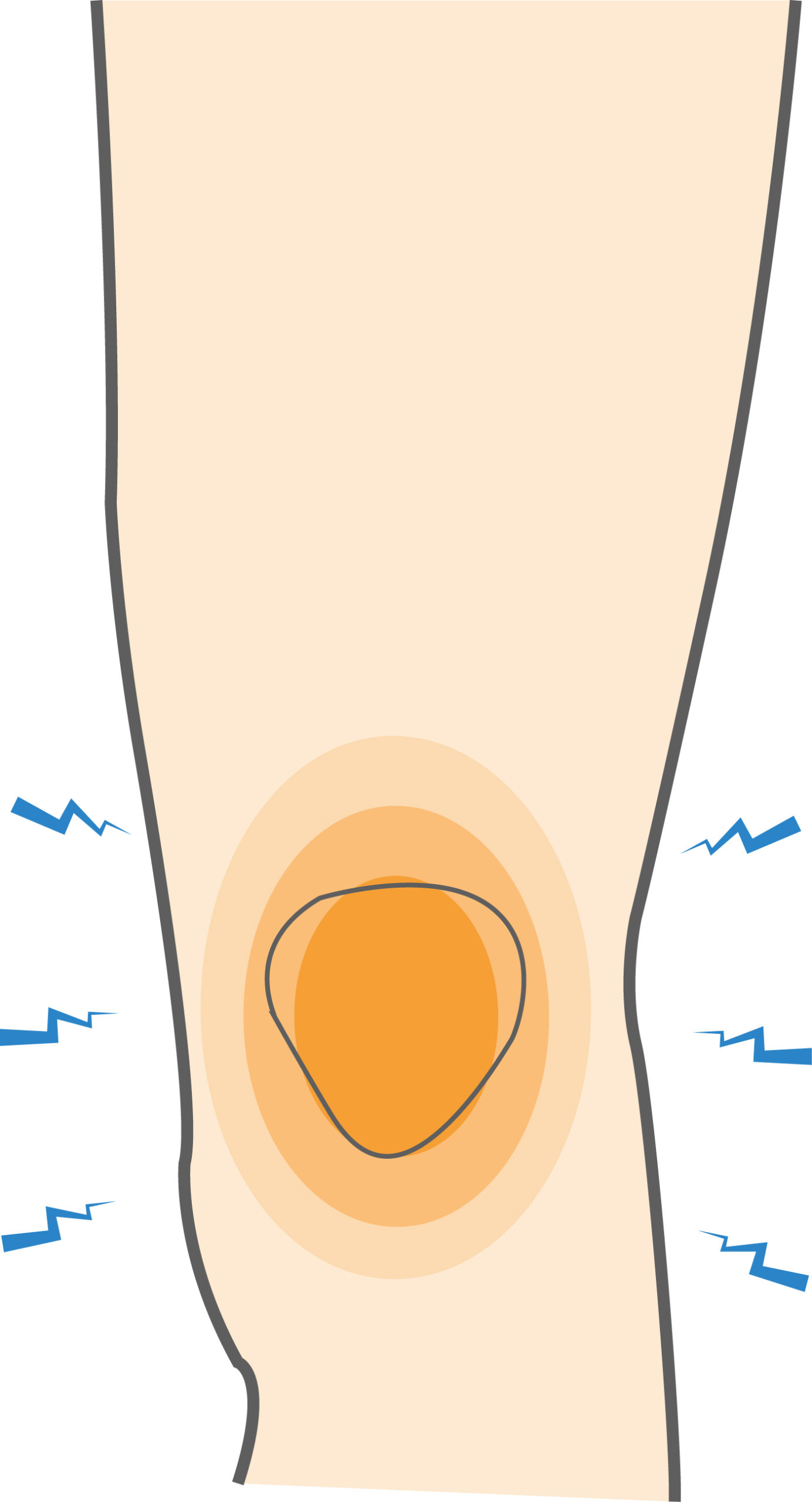A knee contusion, or bruising of the knee, is a mild sports injury that can occur as a result of a direct impact to the knee. When a bruise or contusion occurs, the small blood vessels get damaged and blood leaks out under the skin causing the typical swelling and bruising seen in these injuries.
While a knee contusion is uncomfortable and may temporarily make it difficult to walk or use your knee normally, it’s an injury that typically resolves quickly.


